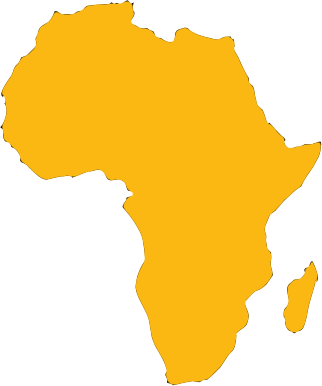From The Desk Of The President.
By President Cyril Ramaphosa
Dear Fellow South African,
It will soon be a year since the first reported case of coronavirus in our country. The pandemic has come at a great cost to both public health and the livelihoods of millions of our people.
Many workers lost part of their income as their work hours were reduced with many being retrenched. Several businesses have incurred heavy losses from scaled-back operations. Others have had to close. People working in the informal sector have also suffered.
Most difficult of all, the pandemic has claimed the lives of breadwinners in many families, leaving them destitute and fearful for the future. This is why the extensive relief measures we put in place were both necessary and urgent. And, now that nearly a year has passed, we can say that these measures have proved effective.
Of the full package of relief measures that we introduced, perhaps the two measures that had the greatest impact were the special COVID-19 social grant and the UIF’s COVID-19 Temporary Employer/Employee Relief Scheme, generally known as COVID TERS.
We would not have been able to roll out these measures in such a short space of time if we had not had an extensive social security infrastructure already in place.
We were able to respond to this huge and immediate need in our society thanks to the substantial nationwide infrastructure and systems of the South African Social Security Agency (SASSA) and the Unemployment Insurance Fund (UIF).
There were certainly technical and other glitches along the way, but most of these were speedily resolved. These government agencies did outstanding work to enroll millions of new beneficiaries and ensure they were paid.
The support provided by the UIF was a lifeline to struggling businesses and employees. It made the difference between companies remaining open and being forced to close, between jobs saved and jobs lost.
This benefited businesses like Sihle’s Brew, a restaurant in Gauteng, which was able to retain its 18 employees because of the TERS scheme. Thanks to government support, Mamoshalagae Trading and Projects, an auto-electrical business in Mokopane, was able to pay its workers as well as its rent and rates during the lockdown.
Employees in dire straits were able to receive a portion of their salaries.
Lindiwe Ntuli, a paralegal in Centurion, has told how receiving her benefits enabled her to work from home and be able to afford her rent.
There are many stories of companies that have been able to stay afloat over the past year because of the support they received from the UIF. The same can be said of the small businesses helped by the various grants and loans provided by a number of departments.
These measures greatly helped our people in their time of need. As we transition from relief to recovery, we have to shift gear.
While these relief measures were designed to be temporary, the economy will continue to feel the effects of the pandemic for some time.
Even as lockdown restrictions have been eased, many companies are struggling to cope with the fallout of months of diminished operations and lost revenue.
It is for this reason that, following extensive discussion with social partners at NEDLAC, the COVID TERS benefit has been extended until 15 March 2021 for sectors that have not been able to fully operate.
The special COVID grant has been extended for another three months. These remain short-term measures.
Our focus now must be on creating an enabling environment for businesses to recover, and for economic growth that spurs job creation and attracts investment.
The recovery will be difficult and will take time, not least because we are still in the midst of the pandemic.
Important as these relief measures are now, we will not be able to sustain them indefinitely. We need to make sure that these relief measures provide a firm foundation for a broader recovery without driving the country deeper into debt. Unless we can bring our national debt down to sustainable levels no meaningful economic recovery will be possible.
Our national consciousness must now move beyond the realm of relief into that of recovery, and we must all be part of this effort.
As government, hard decisions on public spending will need to be made and implemented this year. Companies will need to be innovative in driving methods and processes that secure their sustainability and profitability, with job retention being their foremost consideration.
We must put our money back into our economy by buying local products, supporting local businesses and industries and procuring from local suppliers. An injured patient with strong prospects for recovery is given regular physical therapy to help them get stronger until they can stand unaided.
So must these temporary relief measures be seen as the means to get our economy back on its feet. Our ultimate goal is to walk again. As a nation, let us all lend a hand. Let us be part of our own development and progress.
Let us use the extended relief to drive a stronger recovery.
Article Tags
 Africa
Africa Education
Education Joburg
Joburg South Africa
South Africa Greatest Africans
Greatest Africans Africa
Africa Education
Education Joburg
Joburg South Africa
South Africa Greatest Africans
Greatest Africans